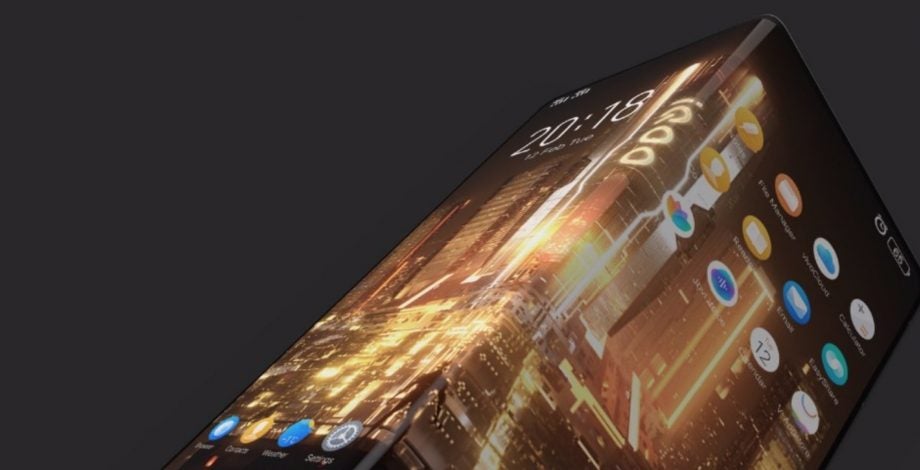Foldable phones are the new 3D TVs – why OnePlus is right to ignore the fad

OnePlus won’t be joining the foldable phone bandwagon any time soon – taking an important stand against something I believe is an expensive trend that offers consumers no proven benefits.
So, OnePlus thinks folding phones aren’t good enough for it to consider making one? To quote the American country singer Maren Morris: “Can I get a Hallelujah? Can I get an Amen?”
Let’s be real. The reasoning behind these foldable phones existing in their current incarnation is flimsy at best. The Galaxy Fold, for example, is little more than a very expensive proof of concept. The hinge mechanism adds a barrier to normal usage, while making the phone itself twice as thick, all in order to facilitate a slightly larger display than the pocket-busting devices we’re already carting about.
This is not a form factor arising from consumer demand like, say, the desire for better selfies and portraits, higher-resolution displays for enjoying videos, faster connectivity for streaming music or larger capacity batteries that don’t conk out on the commute when there’s critical Reddit browsing to be done.
Related: OnePlus 8
This is what we get when manufacturers reach the limits of what is realistically possible and required within the current form factor, can’t shake the stagnation and need something new to hawk. It’s the 2020 version of the 3D television, which also added a barrier to usage without delivering benefits significant enough to offset the inconvenience.
The Goldblum paradigm
It’s like the old Jurassic Park quote from Jeff Goldblum’s character Dr. Ian Malcolm. Samsung and others spent so long thinking about whether they could, they didn’t stop to think about whether they should.
OnePlus is that same voice of reason here. Take the recent comments made by OnePlus CEO, Pete Lau, during an enlightening interview on The Vergecast earlier in January:
“We haven’t found that the significant advantage or value that’s brought that isn’t outweighed by the shortcomings or the disadvantages of the current state of the technology.
“…if you look at the fold and the current foldable technology devices, it’s very large and not very clean or a very crisp fold. That also currently results in a lot of screen creasing or issues with where the fold is in the screen. This isn’t something that I can accept in products that are built. Only when the technology is able to get to the level where that fold can be really crisp and not impact the screen at where the fold happens is when it could be potentially usable or potentially applicable.”
Well we’re not there yet, and yet devices like the massively flawed Galaxy Fold are on sale – for twice the price of the best device the firm has to offer. In some cases, the novelty value of opening the hinge has outlasted its physical capabilities.
I’m really glad OnePlus is speaking on behalf of the average smartphone consumer here, rather than simply going along with the trend. When manufacturers follow the crowd, you end up with stuff like display notches and removal of the headphone jack; trends that remain unpopular.
OnePlus has earned its clout; Pete Lau’s voice carries farther than it ever has. OnePlus could easily just join the manufacturers itching to make this a trend, while using it as excuse to bump up the price of phones even further.
Instead, the firm has effectively said ‘we won’t do this until it benefits you – our users’ and that’s to be admired. It’s not because OnePlus can’t do it, it just doesn’t believe it should.
In many ways, parallels can be drawn with how Apple operates. The firm is often accused of a dearth of innovation because it often isn’t first to debut new features. The iPhone-maker often waits for others to do the donkey work in integrating new features, while it slowly perfects them in the background, waiting until their usefulness has proved worthy of inclusion and people are actually pining for an Apple interpretation.
Invariably, that feature becomes synonymous with Apple, rather than those who strived to be first. See Face ID, for instance.
I was highly critical of OnePlus following the launch of the 7T range in late 2019. I feel it has abandoned its founding principles somewhat, as Pro editions become the norm, prices creep higher and truly useful features, like wireless charging, are stubbornly omitted.
Related: OnePlus 7T is an establishment phone – opinion
I still think those criticisms are valid, but its stance on foldables restores my faith in a firm which has overwhelmingly been a force for good in the mobile world since it first arrived on the scene as a “flagship killer.”
Fad or future?
The technology behind foldable displays is really impressive, or at least it is when it’s not breaking really easily on day one. I actually kinda like what Motorola is doing with the new Razr, because it’s a fresh and ultra-modern take on a device that was truly loved in its time. For many, it’ll be a nostalgia-guided purchase rather than an early adoption of what is clearly the future. I see plenty of potential in how the larger displays enabled by foldables can be useful for multitasking, but Samsung already does that really, really well on the Galaxy Note range, so it’s not like this is a game-changing development.
I believe there are multiple rock-solid use cases for the technology that has been painstakingly developed by the likes of Samsung over the course of a decade. Certainly in wearables, especially with the LG rollable OLED’s we’ve seen on a smaller scale, and probably eventually in smartphones too. Just don’t expect me to fork over £2,000 while manufacturers figure them out.


